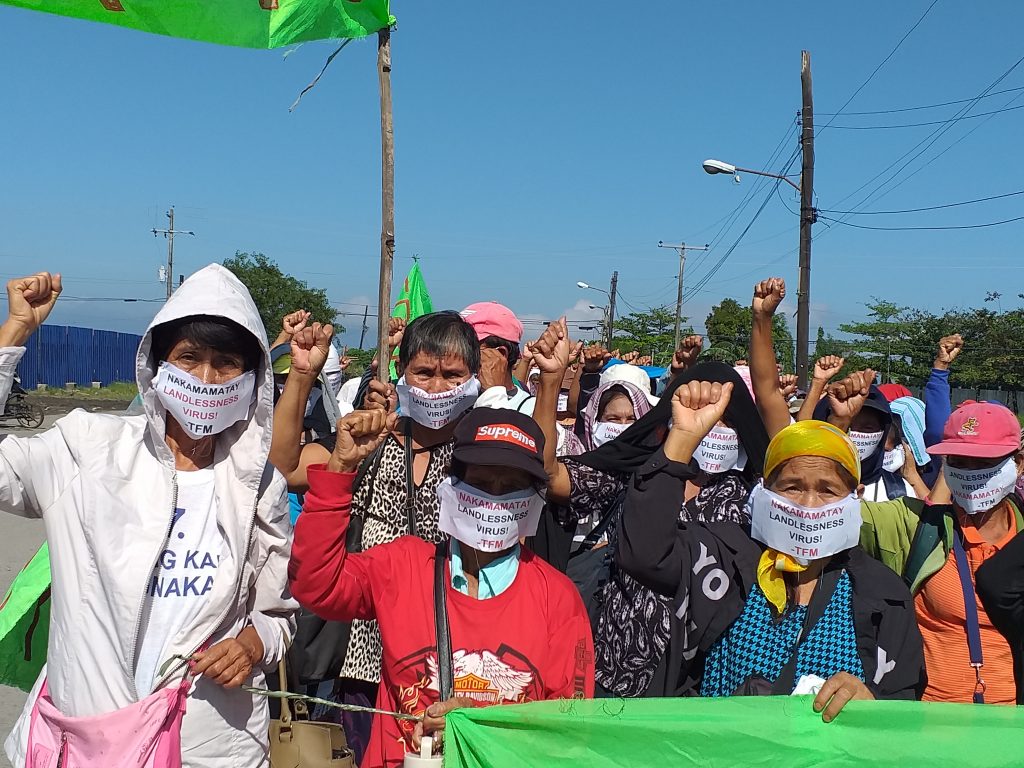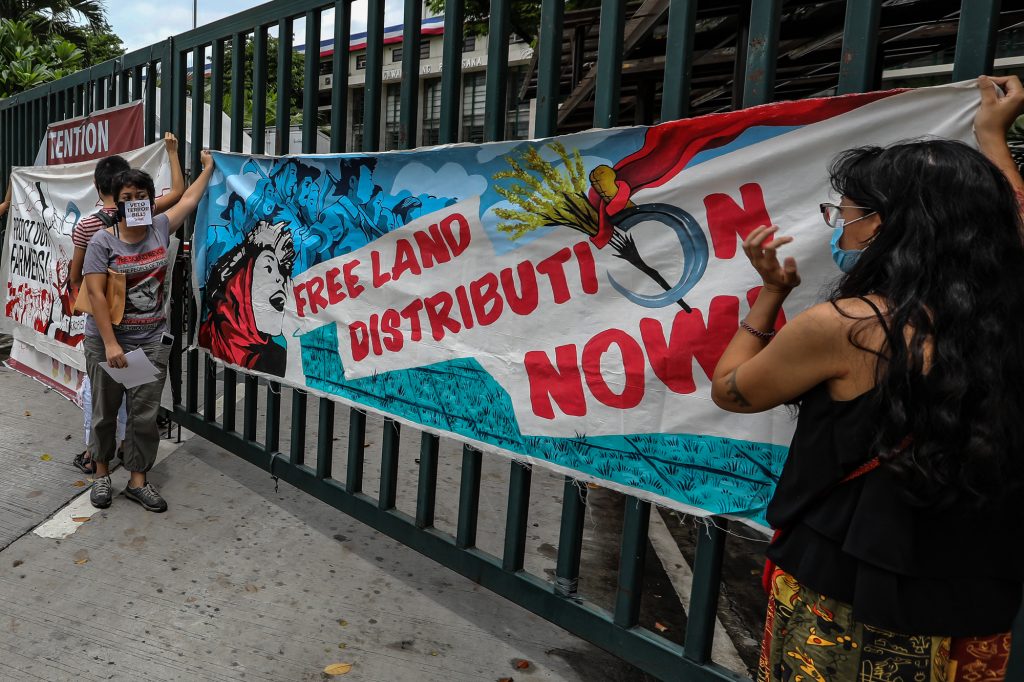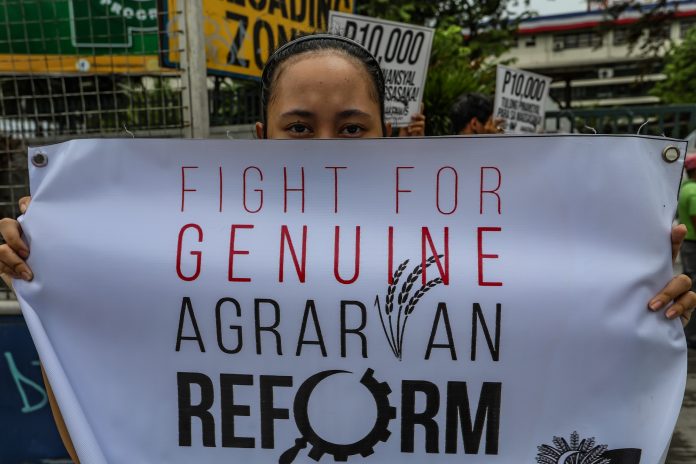PEASANT groups and rights activists decried what they described as the Philippine government’s failure to distribute land to poor farmers 32 years after the passage of the country’s agrarian reform law.
Early in his term, President Rodrigo Duterte promised to intensify land distribution, but peasant groups said the government has slowed down the generation of certificates of landownership award in the past four years.
Task Force Mapalad, a group of farmers mostly from the central and southern Philippines, said the Duterte administration has become “the slowest implementor” of the government’s agrarian reform program.
Under Duterte’s term, the Department of Agrarian Reform was only able to distribute to farmer-beneficiaries 91,776 hectares of agricultural landholdings nationwide from 2016 to 2018, or 30,592 hectares per year, the lowest in history.
The administration of former president Fidel Ramos distributed a total of 1,113,019 hectares of land to beneficiaries or an average of 371,006 hectares yearly.
Former president Corazon Aquino was able to distribute 452,074 hectares from 1988 to 1990, for an average of 150,691 hectares annually.
The administration of former president Joseph Estrada distributed a total of 379,905 ha from 1998 to 2000 or 126,635 yearly.
Under the administration of former president Benigno Aquino 320,916 hectares from 2010 to 2012, or 106,972 hectares annually, have been distributed.
The Gloria Macapagal Arroyo administration distributed 313,778 hectares from 2001 to 2003, or 104,593 hectares yearly.
Duterte earlier acknowledged the “deep-seated problem of landlessness” on Negros island in the central Philippines, home to the country’s biggest landlords.
The president has said the problem in the region is deep-seated “because of the feudal system that existed in those parts of the land.”

Still, the land acquisition and distribution balance in Negros Occidental province remains at 103,373 hectares as of June 2019, accounting for 20 percent of the 521,006-hectare balance nationwide.
“The numbers don’t lie, Mr. President. And words can’t cure the problem. What we want now are the results of your promise to complete land distribution,” said Teresita Tarlac, president of Task Force Mapalad in the provinces of Negros and Panay.
She said the distribution of land to poor farmers “is the only way” that the Duterte administration “can relieve us of our decades-old suffering from widespread landlessness, poverty, and hunger.”
In the capital Manila, peasant and rights groups staged a demonstration on June 10 to call on the government to junk the “failed” land reform law and address landlessness.
Danilo Ramos, chairman of the Peasant Movement of the Philippines, said the current agrarian reform law “must be scrapped once and for all.”
“It is high time that actual tillers own the land that they have worked on for decades,” he said.
Antonio Flores, chairman of the Union of Agricultural Workers, said that after 32 years “seven out of ten farmers remain landless.”
Flores said many of the farmers were forced to enter Agribusiness Venture Arrangements in the form of lease and stock distribution option due to lack of government support.
Data from the Land Bank of the Philippines revealed that 75 percent of agrarian reform beneficiaries could not pay their land amortization.
Flores said lack of support services and subsidy from the government forces farmers to sell their lands or enter into lease agreements.
He said lack of support also drove production costs to skyrocket while prices of the produce of farmers remain at the mercy of traders.
Flores claimed that “loopholes” in the agrarian reform law have been used by landlords to exempt their lands.

The country’s agrarian reform law was enacted by the 8th Congress of the Philippines and signed by former president Corazon Aquino on June 10, 1988.
In 1998, which was the year that it was scheduled to be completed, Congress enacted Republic Act No. 8532 to allocate additional funds for the program and extend the automatic appropriation of ill-gotten wealth recovered by the Presidential Commission on Good Governance for agrarian reform until 2008.
An amendatory law, the Comprehensive Agrarian Reform Program Extension with Reforms, was passed. It extended the deadline of distributing agricultural lands to the farmers for an additional five years. The law also amends other provisions and regulations formerly stated in the law. It was signed into law on August 7, 2009 and was set to be accomplished by the year 2014.
Mark Saludes contributed to this report.









